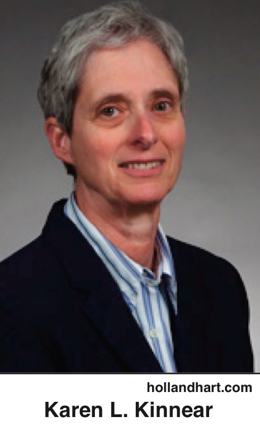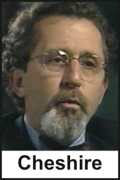Rascals case in brief
In the beginning, in 1989, more than 90 children at the Little Rascals Day Care Center in Edenton, North Carolina, accused a total of 20 adults with 429 instances of sexual abuse over a three-year period. It may have all begun with one parent’s complaint about punishment given her child.
Among the alleged perpetrators: the sheriff and mayor. But prosecutors would charge only Robin Byrum, Darlene Harris, Elizabeth “Betsy” Kelly, Robert “Bob” Kelly, Willard Scott Privott, Shelley Stone and Dawn Wilson – the Edenton 7.
Along with sodomy and beatings, allegations included a baby killed with a handgun, a child being hung upside down from a tree and being set on fire and countless other fantastic incidents involving spaceships, hot air balloons, pirate ships and trained sharks.
By the time prosecutors dropped the last charges in 1997, Little Rascals had become North Carolina’s longest and most costly criminal trial. Prosecutors kept defendants jailed in hopes at least one would turn against their supposed co-conspirators. Remarkably, none did. Another shameful record: Five defendants had to wait longer to face their accusers in court than anyone else in North Carolina history.
Between 1991 and 1997, Ofra Bikel produced three extraordinary episodes on the Little Rascals case for the PBS series “Frontline.” Although “Innocence Lost” did not deter prosecutors, it exposed their tactics and fostered nationwide skepticism and dismay.
With each passing year, the absurdity of the Little Rascals charges has become more obvious. But no admission of error has ever come from prosecutors, police, interviewers or parents. This site is devoted to the issues raised by this case.
On Facebook
Click for earlier Facebook posts archived on this site
Click to go to
Today’s random selection from the Little Rascals Day Care archives….
Click for earlier Facebook posts archived on this site
Click to go to
Today’s random selection from the Little Rascals Day Care archives….
Just what McMartin case needed: More hysteria!
 Nov. 4, 2015
Nov. 4, 2015
“(Psychiatrist Roland) Summit praised the hysteria-induced news media hype and community gossip (about the McMartin Preschool case) as a public service: Without that type and extent of press coverage, the researchers and other professionals would not be able to gather this information and would be trapped by old myths about child sexual abuse.
“Summit complained that investigators were limiting the ability of parents to cope by discouraging them from meeting and discussing the case. The community’s priority, he explained, should be to support the children. Hundreds of children had escaped sexual assault, he claimed, because of the publicity about the McMartin case.”
– From “Childhood Sexual Abuse: A Reference Handbook” by Karen L. Kinnear (2007)
The “satanic ritual abuse” day-care myth had no more enthusiastic – and effective – pitchman than Roland Summit, who conjured up the Child Sexual Abuse Accommodation Syndrome, who spread the gospel as far as New Zealand and who never ever gave up on the existence of the McMartin tunnels.
Although Summit himself never made it to Edenton, his ill-conceived cosmology arrived full-blown.
Prosecutors claimed WHAT happened here?
 April 6, 2015
April 6, 2015
A team from the Duke Wrongful Convictions Clinic recently traveled to Buncombe and Madison counties to collect documents from court clerks’ offices, to interview witnesses and to inspect locations where Junior Chandler allegedly abused children who rode his day-care bus.
Billy Chandler, Junior’s brother, and Clayton Rice, his lifelong friend, guided the Duke investigators (and me) along Junior’s daily route. The narrow, twisting backroads led us to the sites along the French Broad River where prosecutors claimed Junior had repeatedly committed the most bizarre sexual crimes imaginable.
The photo at the right shows a typical vantage. It has always seemed incredible to me that Junior – as described in Mark Montgomery’s amended petition for writ of certiorari – “would drive off his route to a parking area next to the French Broad River, strip the clothes off the toddlers, troop the naked children down to the river, put them on a rowboat, proceed to insert various objects into their anuses and vaginas, bring them back to the bus, put their clothes back on and deliver them home.”
Actually visiting and walking around the supposed crime scenes, which are completely open to neighbors and passersby, only reinforces my impression: The allegations against Junior are simply inconceivable.
So where do things stand as Junior Chandler approaches his 29th year in prison? Clinic co-director Theresa Newman provided this cautious update: “The Duke Wrongful Convictions Clinic has spent the past few months studying the file passed to them by previous post-conviction counsel, researching the developments in the relevant medical and psychological science since the mid-1980s, and otherwise trying to master this complicated and complex case. We are now moving into the next phase of our typical investigation….”
The title of Newman’s illuminating TEDx talk at Elon University couldn’t be more apt: “Waiting is a Beast.”
‘We’ve learned a lot….’ (Too bad it took so long)
March 30, 2012
Kee MacFarlane is the notorious therapist who led the ritual abuse scare of the late 1980s (and pioneered the misuse of anatomically correct dolls in interviewing children). In just four months MacFarlane diagnosed more than 360 children at the McMartin Pre-School as abused.
In 2005 she declined to be interviewed by CNN but sent a statement:
“We’ve learned a lot in 20 years about how to interview children for forensic purposes and how to manage complex cases such as this one. It would be a sad commentary if we didn’t learn from such painful experience.”
Not much of a mea culpa – but still more than anyone connected with the Little Rascals prosecution has managed.
Betsy Kelly wouldn’t succumb to state’s torture
 July 16, 2012
July 16, 2012
“Elizabeth Kelly was denied parole Friday, three months after pleading no contest to charges of sexually abusing children at her Edenton day care.
“Mrs. Kelly, sentenced to seven years, was eligible for parole upon entering prison because she had already served more than two years while awaiting trial.
“Prosecutor Bill Hart said opposition to Mrs. Kelly’s release was heightened by her statements of innocence after entering her plea.
“‘From my work dealing with sex offenders there is no way you can treat a sex offender and restore them to the community until that person admits the wrongness of her actions and takes responsibility….’”
– From the Associated Press, April 16, 1994
From the beginning, the prosecution never missed a chance to tighten the thumbscrews on Betsy Kelly: Plead guilty, implicate your husband or suffer grave consequences. Although she eventually took a plea bargain, she never accommodated Bill Hart’s pious insistence that she admit “the wrongness of her actions.”
In October 1989, about six weeks after her arrest, a hearing had been held in Raleigh on whether Kelly should be forced to move from a mental health unit into Dorm C at women’s prison.
Recalls Faye Sultan, a Charlotte forensic psychologist who testified on her behalf: “She had been found guilty of nothing at that point, but she was being housed in the most isolated, restrictive facility in the prison, where Death Row and disciplinary inmates were housed. Seems a bit unfair, no?”
Sultan testified that Kelly’s “psychological condition is rapidly deteriorating, and in fact she is on the edge of becoming psychotic.”
Why would the state insist on moving a pretrial “safekeeping” defendant to such a hostile environment? “The reason was to pressure Betsy,” says Joe Cheshire, her lawyer. “They didn’t know her very well, did they?”











0 CommentsComment on Facebook